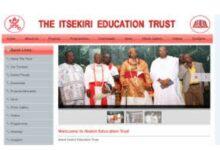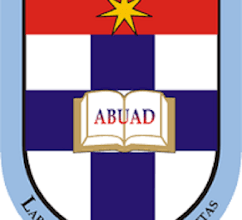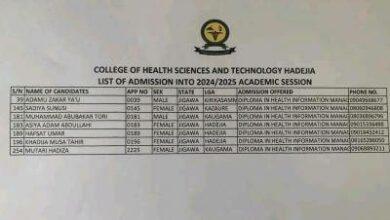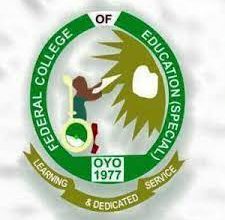11 Roles of State Ministry of Education
Here in this post, we are going to discuss the role of the state ministry of education. We hope you find this post insightful and educating.
Nigeria became a republic in 1963 and has since practised what is referred to as a federal system of government. This is largely understood for its distribution of power between the central government (Federal government) and its component units (State and local government).
👉 Relocate to Canada Today!
Live, Study and Work in Canada. No Payment is Required! Hurry Now click here to Apply >> Immigrate to CanadaAs a matter of fact, in the case of Nigeria, considering the Federalism it practices, the dynamics of a federal system of government is evident in its workings and operations. One of which includes the existence of ministries both at the central government and its component units.
Read Also: 8 Roles of Ministry Of Education in Nigeria
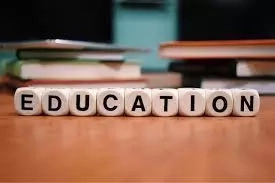
The major idea behind this is to ensure, that the entire entity called Nigeria, is effectively managed at every level with development finding its way into every fibre of the Nation.
This underlying principle is what necessitated the existence of what can be referred to as the “State Ministry of Education” which is the focus of our discussion.
Read Also: The Role of Special Education in Nigeria
Without a doubt, the state Ministry of education from design has statutory roles it is expected to play. This is basically because; true federalism gives room for what could be referred to as separation of powers. The roles or responsibilities of the state ministry of education include:
- Liaise with the local education authority to develop education at the local levels.
- Formulate policies, monitor and effectively manage secondary schools.
- Responsible for many tertiary institutions in the country
- Play an oversight role for the effective management of primary schools.
- Responsible for construction of schools.
- Provide guidance and counselling.
- Responsible for making special education available (i.e. gifted/ talented children and handicapped children)
- Effective relations with the Nigerian Union of Teachers.
- Purposeful relationships with voluntary organizations.
- Relationship with TESCOM.
- Approval, Regulation and monitoring of private, pre-primary, primary, post- primary, vocational and technical institutions.
Taking a closer look at each point highlighted above would help our understanding of the role of the state ministry of education in Nigeria.
Read Also: The Importance of Primary Education in Nigeria
👉 Relocate to Canada Today!
Live, Study and Work in Canada. No Payment is Required! Hurry Now click here to Apply >> Immigrate to Canada1. Liaise with local education authority to develop education at the local levels
The local education authority exists at the grass-roots (local government). At that level, the local education authority is familiar with every school within its local government area, pays them visit from time to time and ensures that the educational policies as directed from the state government are strictly adhered to.
The state ministry of education utilizes the local education authority to ensure that the education policy direction of the state is followed.
2. Formulate policies, monitor and effectively manage secondary schools
There are usually several secondary schools within a state. The state ministry of education is saddled with the responsibility of ensuring that they come up with a direction for such schools by coming up with policies that they believe, would help improve the standard of education within the state. They also see to the effective implementation of these policies in secondary schools across the state.
3. Responsible for many tertiary institutions in the country
A lion share of government-owned tertiary institutions within the country are owned and managed by the state government.
This is achieved through the machinery of the state ministry of education. The state government through the ministry of education ensures for proper management of such institutions.
They also see to it, that the standard of education in such schools is well taken care of as well as the general well-being of the school as a whole.
4. Play an oversight role for the effective management of primary schools
Local education authority exists in every local government. And they are saddled with the statutory responsibility of primary school management.
However, because no local government exists in isolation, the state government through the state ministry of education monitors and oversees the management of primary schools within the state.
Read Also: The Role of Citizenship Education in Improving Democratic System of Government in Nigeria
5. Responsible for construction of schools
The infrastructural development of secondary schools is largely the responsibility of the state government through the state ministry of education.
They see to it, that schools are constructed and fully equipped so as to ensure that an enabling environment is provided for secondary school students within the state.
6. Provide guidance and counselling:
The State ministry of education ensures that every secondary school has an effectively functioning guidance and counselling department.
They are aware that teenagers at that stage of their lives would be making major decisions coupled with the many changes occurring in their bodies. The ministry of education thus ensures that schools are provided with a guidance and counselling department.
7. Responsible for making special education available (i.e. gifted/ talented children and handicapped children)
We would always have special children, who equally have a right to education. The state ministry of education is aware of this fact and so they have a system in place that caters for the educational needs of these special children.
Allocations are made by the state government through the ministry of education, to establish and properly manage the operations of such special schools in order to meet the need of students classified into the category of special students.
8. Effective relations with the Nigerian Union of Teachers
The Nigerian Union of teachers is a trade union formulated in 1931, to create a united front for practitioners of the teaching profession, and essentially to see to the general well-being of this category of persons.
The state ministry of education establishes a proactive relationship with this union, to ensure that policies and decisions as it pertains to schools and teachers are mutually beneficial to the government as well as the teachers.
9. Purposeful relationships with voluntary organizations
The state ministry of education takes discretion, by building a relationship with organizations mostly non-governmental with goals that help to improve the students, the standard of education or both as the case might be.
10. Relationship with TESCOM
Teaching Service Commission saddled with the responsibility of recruiting human resources for post-primary schools within a state and many times than not, directly responsible to the governor.
Because of the important role played by TESCOM, the state ministry of education ensures that it interfaces with this body, in order to ensure the delivery of quality education within the state.
Read Also: Current Issues In Business Education In Nigeria
11. Approval, Regulation and monitoring of private, pre-primary, primary, post-primary, vocational and technical institutions:
With the increasing number of privately owned pre-primary, primary, post-primary, vocational and technical institutions, there comes an urgent need for the state ministry of education to put a mechanism in place to see to the effective management of these institutions. This is to ensure that quality education and educational government policies are implanted.
In closing, the state ministry of education, without a doubt plays a crucial role in ensuring that quality education in provided in Nigeria.
